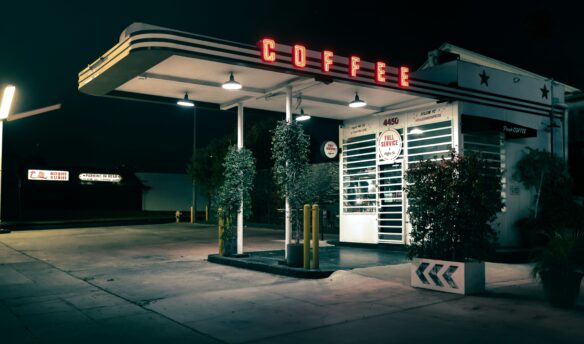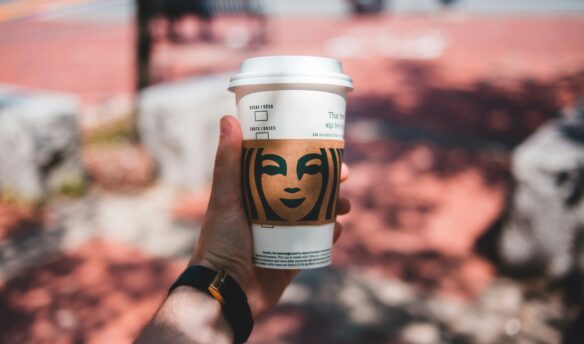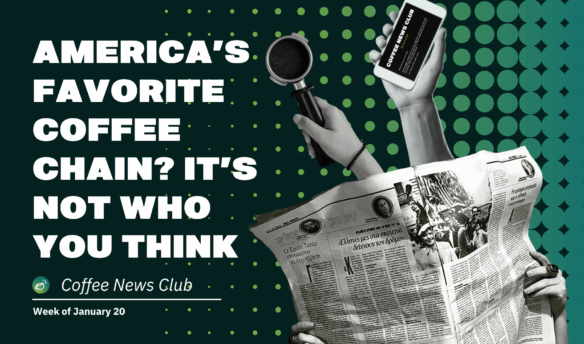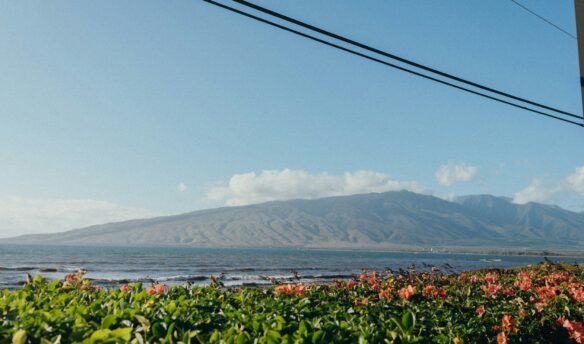Hard coffee is back! Plus, help coffee shops impacted by the Maui wildfires, natural-processed coffees from Brazil are hitting the commodity market, and workers at a Canadian Starbucks ratify their first contract.
‘Here’s How To Help Coffee Shops Affected By The Maui Wildfires’ – via Sprudge
Last week a wildfire devastated the historic town of Lahaina, once the capital of the Hawaiian Kingdom, killing dozens and displacing thousands more. Experts point to a combination of “flash drought, invasive grasses, winds, hurricane and climate change” as the causes of this unexpected fire, which has affected coffee farms in the area and multiple coffee shops in Lahaina.
To help, locals have started several fundraisers to help with recovery efforts. One is the Help Lahaina Get Caffeinated Again, a GoFundMe set up to assist coffee shops and cafes affected by the fires. Another coffee company, VigiLatte Artisan Coffee, has also set up a GoFundMe to help the company and its employees, many of whom lost their homes in the fire. Away from coffee, a local non-profit called ʻĀina Momona has a fundraiser to support Hawaii Community Foundation’s Maui County Strong Fund.
‘Exclusive: Brazil ‘Natural’ Coffee Hits Premium Market in Challenge for Small Farmers’ – via Reuters
Large volumes of natural-processed coffees from Brazil are reaching the Intercontinental Exchange (ICE) commodity market in what some have described as a structural change to the coffee trading status quo.
Coffees sold through ICE, commonly known as the C market, “traditionally reflected premium grade coffee,” according to Reuters. In past years, any coffee that presented “an unwashed flavor in the cup” would fail ICE’s grading. But recently, the quality and taste of “lower grade” natural and semi-washed Brazilian coffees have improved to the point where some can now pass these tests.
Cecafe, Brazil’s exporters’ association, confirmed that naturally-processed coffees were being sent to ICE and described it as a reflection of Brazilian coffee’s improved quality and sustainability. “ICE has their standards established for each origin and each lot is subject to quality approval,” Cecafe president Marcio Ferreira said. “We understand that if each lot has its quality approved … it is because it fits established quality parameters.”
Traders and other experts interviewed by Reuters called this a “structural change set to weigh on world coffee prices in the long-term.” More naturals being accepted means an increase in stock at ICE’s warehouses, which can put downward pressure on an already low C price and therefore impact the price paid to farmers The article notes that the C price in 1980 was, adjusted for inflation, 500% higher than today.
‘Would You Try The New Dunkin’ Spiked Hard Iced Coffee?’ – via Sprudge
Hard coffee isn’t dead.
After the demise of Pabst Blue Ribbon’s Hard Coffee, it would have been safe to assume that the niche of ready-to-drink (RTD) coffee plus alcohol was on its way out. But thanks to some sleuthing by Vinepair, it looks like Dunkin’ is trying to resurrect it.
Vinepair found an impending lineup of Dunkin’ Spiked RTD alcoholic tea and coffee beverages on the Alcohol and Tobacco Tax and Trade Bureau’s database of approved labels. The website shows eight different options, with four coffee offerings featuring original, caramel, mocha, and vanilla—each with 6% alcohol by volume.
Boston’s Harpoon Brewery will produce the malt-based beverages, although Dunkin’ has yet to set a release date (or even make an official announcement). The two companies have worked together before: they have collaborated on several coffee-based beers since 2018, as well as a few made with actual donuts.
After taking off in 2019, hard coffee as a segment had a stratospheric rise, with sales increasing 11,000% during the year ending July 2020. The fall was slower and less steep but appeared to be permanent. PBR pulled its infamous beverage in 2022, and La Colombe’s hard cold brew disappeared as well.
It seemed like the RTD coffee world had moved on (to canned espresso martinis, apparently), but maybe Dunkin’ knows something we don’t.
More News
‘Out-of-state Coffee Shops Pour Into Indy’ – via Indianapolis Business Journal
‘GoFundMe: Help Espresso Technologies’ Anthony McCrae As He Recovers From Heart Surgery‘ – via Sprudge
‘San Francisco Could Be Flooded With Yemeni Coffee by Next Year’ – via Eater SF
‘ICO and Coffee Board of India to Host Fifth World Coffee Conference’ – via Global Coffee Report
‘Blast Away Grinder Static With Acaia’s Ion Beam‘ – via Sprudge
‘Yellowstone’ Cowboy Cole Hauser Launching a Western-Inspired Coffee Company This Fall‘ – via the Hollywood Reporter
‘Coffee Equipment Pros Launches for New and Used Roasting Equipment‘ – via Daily Coffee News
‘Volcafe Hosts Annual Café Gourmet Event in Honduras’ – via Global Coffee Report
‘Coffee Shortage Spurs Brazilian Traders to Send Beans to London’ – via Bloomberg
The Week in Coffee Unionizing
Starbucks lost a challenge to a ruling ordering it to rehire the Memphis Seven, a group of workers at a Tennessee store allegedly fired for their organizing in 2022. The Sixth US Circuit Court of Appeals decided that the firings served to discourage other employees from exercising their legal right to unionize.
Circuit Judge Danny Boggs wrote, “Fear of retaliation will exist unless the Memphis Seven, apparently terminated for their union support, are reinstated.” Starbucks rehired the seven labor leaders last year after an initial ruling determined the firings to be illegal, but continued to appeal the decision.
Starbucks Workers United has filed over 600 complaints with the National Labor Relations Board alleging illegal union-busting behavior on the part of the coffee giant. Starbucks has challenged many of them—this is the first ruling from an appeals court, with several other cases pending.
Although Starbucks declined to comment on this loss, it has long denied accusations of union-busting and claims to respect its worker’s rights. This case shows that organizers and the NLRB are not afraid to pursue their objectives through alternate routes, Reuters writes. “The decision could embolden the National Labor Relations Board, which enforces US labor law, to use the courts to aggressively police Starbucks’ labor practices as they also come under scrutiny from shareholders and the US Congress.”
Meanwhile, in a sign that such things are possible, Starbucks workers in Canada have ratified their first contract, having voted to unionize in July 2022. The workers joined the larger United Steelworkers union, saying, “the deal ensures better working conditions, job security, and gives employees the ability to speak out on issues that affect their work lives.”
Not a single one of the more than 300 unionized Starbucks in the United States has reached an agreement on a contract.
Is Coffee Good For You?
Besides producing the delicious brew we all love, coffee has plenty of byproducts that we use to create other tasty beverages. The most well-known is cascara, or coffee cherry tea, which has recently gained popularity even if European regulators have been slow to approve it for sale. The European Union only approved cascara for import and commercialization in early 2022.
But perhaps the EU’s reluctance was unwarranted. Researchers in Germany have conducted a literature review of the effects of chlorogenic and isochlorogenic acids. These compounds occur naturally in coffee plant byproducts such as cascara, coffee flowers, leaves, and other parts of the cherry. The study found no evidence of toxicity in any of these byproducts.
The study, published in Molecules, aimed to “assess the potential health risks associated with the oral consumption of coffee by-products containing chlorogenic and isochlorogenic acids, considering both acute and chronic exposure.”
“Based on current knowledge, long-term exposure to chlorogenic and isochlorogenic acids at levels typically found in coffee byproducts does not appear to pose a health risk to humans,” the authors write. Drinking a delicious coffee byproduct beverage can thus “be considered reasonably safe,” which is good to know.
Beyond the Headlines
‘Philly is a (Coffee) Union Town’ by Fionn Pooler
‘Column: On Fair Coffee Prices and Big Macs’ by Jos Algra
‘Transparency Is a Data Point, Not an Endpoint’ by Ashley Rodriguez







